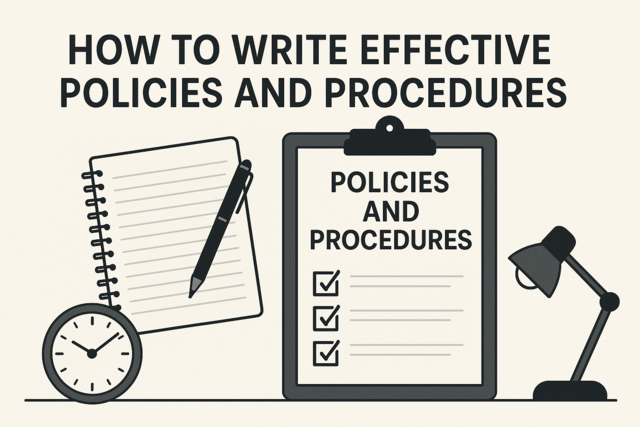On the national and state levels, there are dozens upon dozens of laws that employers need to be aware of and comply with. Some are purely for how they operate their business and their own professional practices, and are fairly standard regardless of industry or location. Others pertain towards the employees themselves and how they should be treated, including instances of employment termination. Those laws are what employers use or refer to when termination is an option in order to ensure the lawfulness of their actions.
This article will discuss the different employment laws that are active in the United States. Those listed here can be directly involved in the termination process and/or be a part of the circumstances that lead to termination. Violation of these laws often result in a termination or other such employee punishment being considered illegal or unlawful. These laws are standard throughout the country, without any location-based restrictions. Keep in mind that there may be state-level laws that supplement those listed here, so it's best to familiarize yourself with the laws that exist in your area in addition to the national laws.
At-Will Presumption
With a few exceptions, employees in almost every state in the United States is presumed to be an at-will employee. This is a type of employment which basically states that an employee can be hired or terminated at any time, for whatever legal reason(s).1 It's more or less the default employer-employee relationship in the eyes of the business world and the law. The majority of the workforce is presumed to be made up of at-will employees, or at least began with that designation at the start of their career or employment.
The first set of laws that will be discussed are employee rights. These are laws that identify some of the things that employees are legally entitled to throughout their employment. Employers are expected to provide these rights to their employees and not impinge upon them in any way.2 The reason why these laws are a part of the discussion regarding termination is that some unlawful terminations begin or are contributed to by violations of these laws. Employees legally cannot be punished for exerting or seeking these rights from their employers; the only exclusion is when employees abuse the protections these rights provide them in inappropriate circumstances.
Most employee rights are based in common sense and are things that they are legally entitled to outside of work. Others, like the right to privacy, are dependent on certain conditions and circumstances (e.g. certain spaces like the bathroom, locked desk drawers, etc.).3 Those rights could be violated legally should there be legitimate cause for concern over the employee's health and safety-breaking into a locked drawer or locker to retrieve an EpiPen or other life-saving medication for someone having an allergic reaction, for example.
Some of the rights that employees have are protected under specific laws. These include:
� The Fair Labor Standards Act (FLSA)-The FLSA dictates that employees are entitled to fair wages for their work, and dictates things like minimum wage and overtime pay.4 If an employee works for 40 hours per week, they are entitled to receive payment for 40 hours of work per week. The law basically prevents employers from abusing employee work times or from withholding any wages due to them. Employers cannot punish employees for seeking those earned wages. Any pay that an employee has at the time of their termination is also due to them under FLSA, so employers cannot withhold wages because of a major change in the person's employment status like termination.
� The Occupational Safety and Health Act (OSH)-The OSH Act is the law that created the Occupational Safety and Health Administration (OSHA) within the Department of Labor in 1970. Its purpose is to ensure worker's rights to a safe working environment and protection from workplace hazards, conditions of which are to be provided by employers.5 Employers are legally required to maintain safe working conditions for their employees in line with regulations set by OSHA, and can be severely punished for violations.6 In some cases, employers who fail to adhere to these regulations are reported on by their employees. These employees are known as whistleblowers and are sometimes illegally punished for their actions by their employers, which can include termination. It should be noted that this designation and legal protection can apply to any employee who reports violations and illegal activities of any kind committed by their employer, workplace safety related or otherwise.
� The Family and Medical Leave Act (FMLA)-Since 1993, employees can take time off from work to deal with any family responsibilities that they may have without fear of repercussions.9 It applies to private businesses with 50 or more employees so smaller businesses might not have this protection, but all public employees (e.g. federal employees) are eligible regardless of staff sizes. However, they have to have worked for their employer for at least 12 months with 1250 hours worked during that time. Employees seeking to use FMLA are eligible for a maximum of 12 workweeks in a 12 month time period of leave to care for immediate family members (parents, children, spouse) or themselves.10 It can be used for medical/health conditions, births and adoptions of children, and emergency situations for regarding family members who are active members of the military. Employees who are responsible for the care of an immediate relative in active military service can also take 26 workweeks in that same 12 month period should that person be seriously injured.11 Any employee using FMLA for legitimate reasons (i.e. those that meet the requirements) cannot be punished by their employer for doing so.
� The Uniformed Services Employment and Reemployment Rights Act (USERRA)-USERRA dictates that employees who are called or volunteer for military service cannot be punished by their employers for doing so.12 Employers cannot terminate an employee simply because they have been called back into active service; legally they are still entitled to keep their job. Those who return from active duty within five years are entitled to reclaim their pre-service job or something equal to it from their employer.13 In a sense, it's a type of leave that the employee takes and their position can be filed by a substitute or other temporary employee until they return (e.g. via the use of a short-term contract).
Anti-Discrimination Laws
As there is a diverse amount of anti-discrimination laws, the rest of this article will only discuss a sample. All of these are managed on the federal level and are thus applicable nation-wide. However, there may be some supplementary laws and counterparts on the state-level.
� Title VII of the Civil Rights Act of 1964-This law is the primary anti-discrimination law which offers protection from discrimination based on race, gender, religious affiliation, and national origin.14 Employers cannot discriminate against or harass employees, both current and potential, in anyway regarding those characteristics. Should it be proven that an employee was terminated on the basis of their race, gender, religion, or national origin, then their employer will be legally held liable for wrongful termination. Many such violations of Title VII are handled by the Equal Employment Opportunity Commission (EEOC), a federal organization that investigates workplace discrimination and enforces federal anti-discrimination laws.15 The EEOC also manages and enforces the other laws listed in this article.
� The Americans With Disabilities Act (ADA)-The ADA was enacted in 1990 to protect those with disabilities from being discriminated against in the workplace. This applies to physical and mental disabilities that present a substantial impairment for the person in their daily life.16 Employees must still be qualified for their position and able to do their work despite their disability; disability or not, if you are unable to do your job as you are supposed to and are terminated for it, then it isn't considered unlawful. An employer may need to supply employees with disabilities with accommodations under the ADA, so long as the accommodations are reasonable. For example, expecting an employer to install a ramp for a wheelchair-bound employee is considered reasonable accommodation but expecting them to extensively remodel the entire building for that same employee is a little excessive. The ADA also offers protections for discrimination regarding perceived disabilities, i.e. an employer believes an employee has a disability of some kind and discriminates against them for it even though they do not have a/that disability.17
� The Age Discrimination in Employment Act-ADEA prohibits any discrimination against employees based on their age, specifically for those who are 40 years old and up.18 It can be difficult to prove without clear evidence, but even some basic facts (e.g. being replaced by a younger employee) can strengthen any legal ADEA claims an employee makes against their employer. In some cases, termination due to age discrimination is done to prevent the employee from receiving benefits tied to seniority or retirement. Forcing an older employee into retirement-which could constitute terminating their employment-is also prohibited under the ADEA, as is intentionally selecting older employees when downsizing or with layoffs.
� The Pregnancy Discrimination Act (PDA)-PDA protects employees who are discriminated against due to pregnancy and other related conditions (including childbirth). Employers might discriminate against a pregnant employee because of things such as the amount of time they take off due to their condition, any restrictions it places on their ability to normally do their work, and the impact it can have on employee benefits like health insurance.19 In some cases, the employee is terminated as soon as they reveal to their employer that they are expecting to avoid dealing with anything that might come about as a result of the pregnancy that can potentially impact their work. However, this is illegal and employers must treat pregnant employees the same as ever and must hold the employee's job for them during any related absences (e.g. maternity leave). They also cannot be terminated for any health conditions that they develop due to their pregnancy, even if the condition impacts the employee's ability to do their job; in those instances, the employee should be treated as a temporarily disabled employee and given similar accommodations that they would receive under the ADA.

























